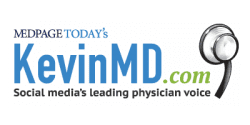Storytelling
A powerful communications medium, with the chance to get into someone else’s mind and connect through experience. Sometimes the experience is vicarious, because not everyone has lived what the storyteller has. But the storyteller’s words can have a profound effect, and the listener can appreciate what is told within a recognizable context. The works of Shakespeare are an immense collection of stories, of triumph and tragedy, of love and sacrifice, of comedy and play on words. His characters were often of the nobility, but the messages in his plays spoke to universal truths. Shakespeare’s audiences were rarely of noble means, but they felt a sense of involvement with the actors—a connection created by story.
Storytelling has its roots in language across the spectrum of human communication, from cave paintings to hieroglyphs, from campfires to podcasts. Storytelling provides a glimpse into the storyteller’s life, but it shares something even more valuable in the life lessons it has for current and future generations.
As I was approaching my retirement from medical practice, I received a brochure describing the Harvard Writer’s Course for healthcare professionals, and I decided to attend. What I learned from the faculty and attendees changed my attitude about giving up what had been my professional identity as a doctor. Through writing, I could assume a new purpose, to tell stories of my patients and to provide insights into the medical profession. One of the books I read, On Writing Well, captured my thoughts at the time. “Memoir writing is an important kind of writing. Memories too often die with their owner, and time too often surprises us by running out.” I committed to writing a memoir, and I submitted a book proposal to a publisher I had met at the Harvard Writers’ Course. My proposal was rejected, as was my follow-up proposal on mentors. That made me think that perhaps I shouldn’t quit my day job! However, I continued to write essays and stories for popular social media platforms, including KevinMD, where “physicians, advanced practitioners, nurses, medical students and patients share their insight and tell their stories.”
It was after my essay was published, on what would have been my mother’s 96th birthday, that I was contacted by the CEO of a healthcare startup. A conversation ensued, and he set the hook for my involvement by saying, “I think I know how you can get your memoir published!” I was asked to advise his company on how the patient-physician relationship could be leveraged to retake control of healthcare. Accepting that role meant that I would need to broaden my view of our healthcare delivery system, and I began reading books and articles that spoke to the breakdown in that sacred relationship between patients and their doctors. Then the coronavirus attacked, and I now had to face the juxtaposition of distrust in healthcare with a pandemic.
Fortunately, by that time, I had developed a sense of how a prescription for rebuilding trust in healthcare could be formulated, and I began writing during the COVID-19 lockdown. Things happened rather quickly after that. My editor for Rebuilding Trust put me in touch with a publisher who was also a graphic designer. We scheduled a series of phone calls to follow the script for developing my imprint, selecting a book cover design, and getting my book published. From there, her contacts led to the eBook version, and what followed was the audio book that will be available in just a week or so, around Thanksgiving. I have a lot to be thankful for, and the stories will keep on coming!
Paul Pender, MD, author of Rebuilding Trust in Healthcare: A Doctor’s Prescription for a Post-Pandemic America, Early Arrival Press, 2020

